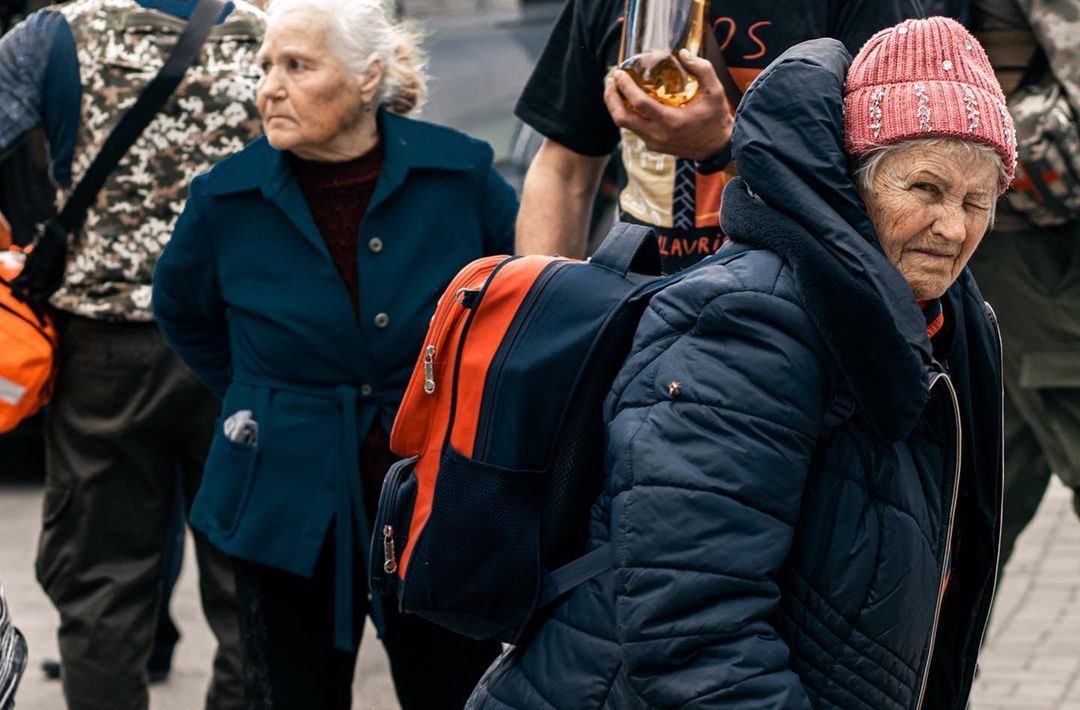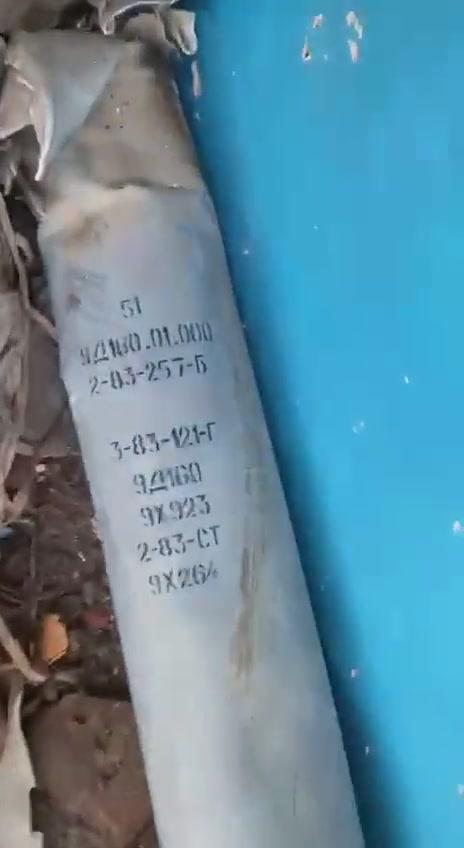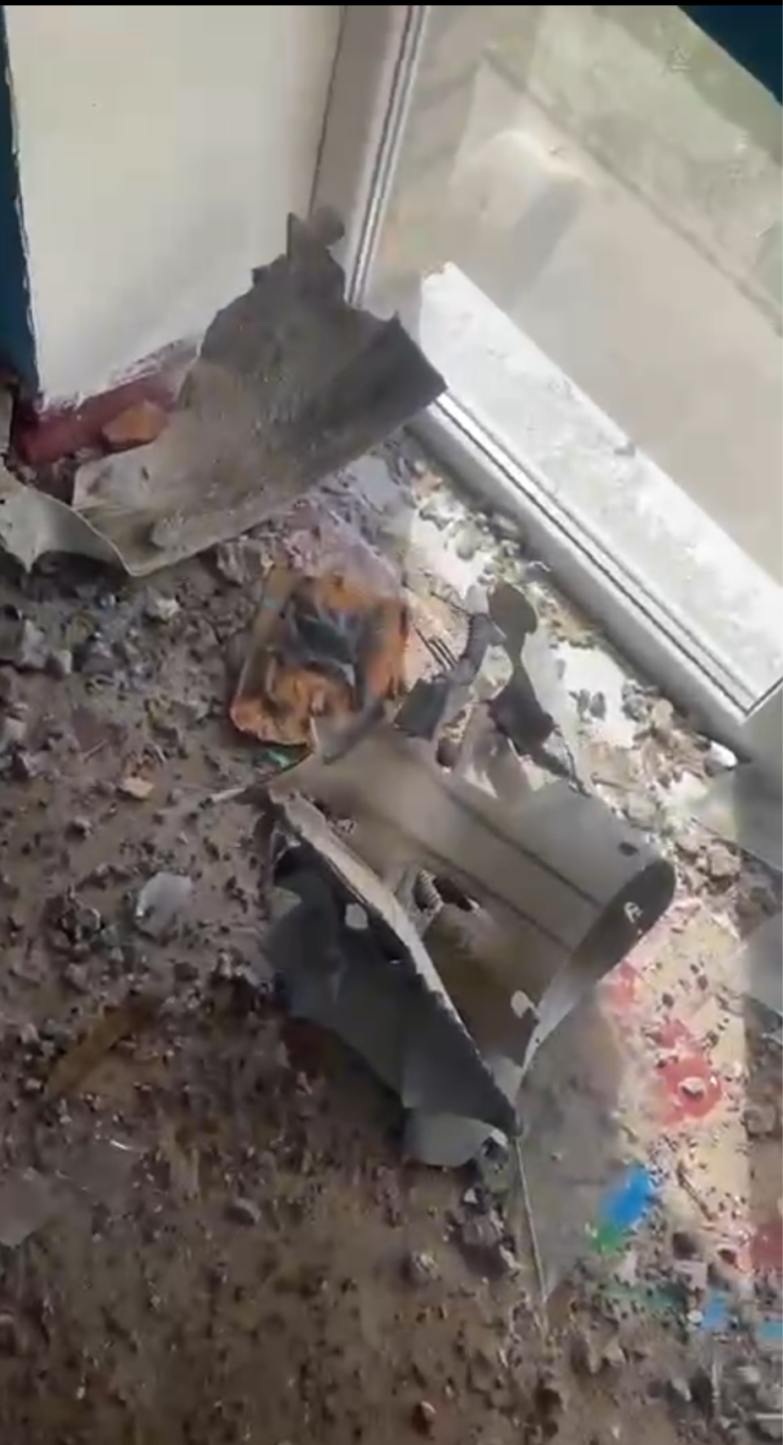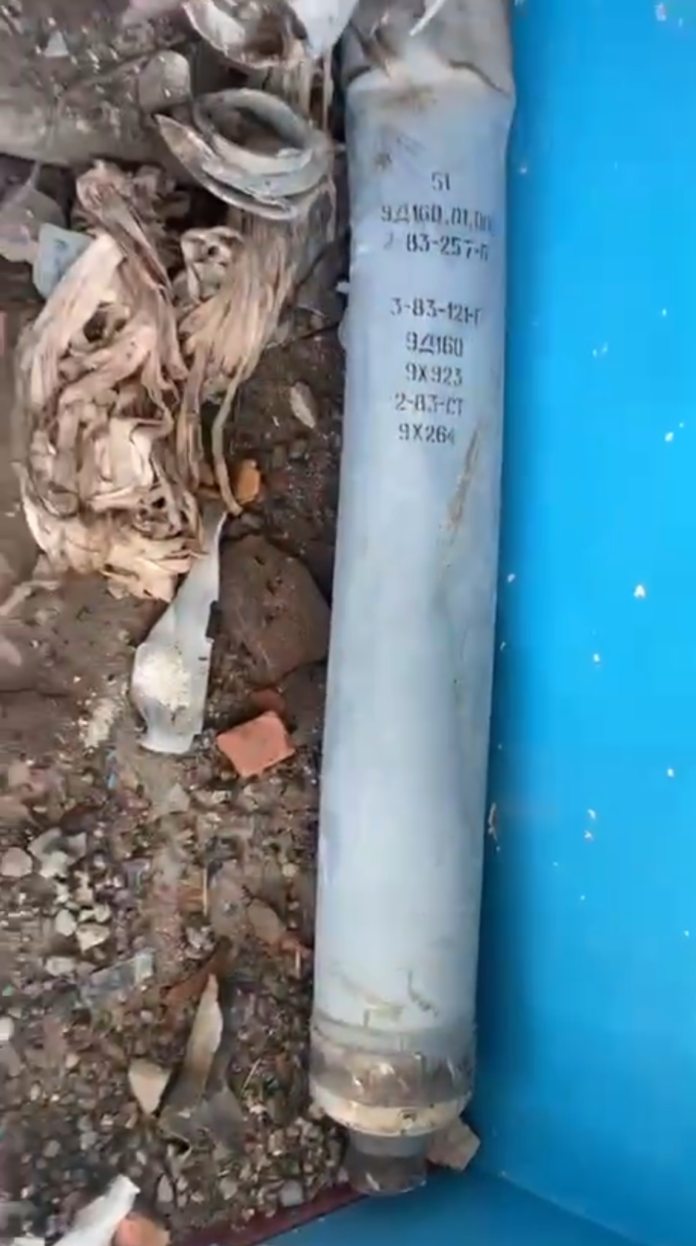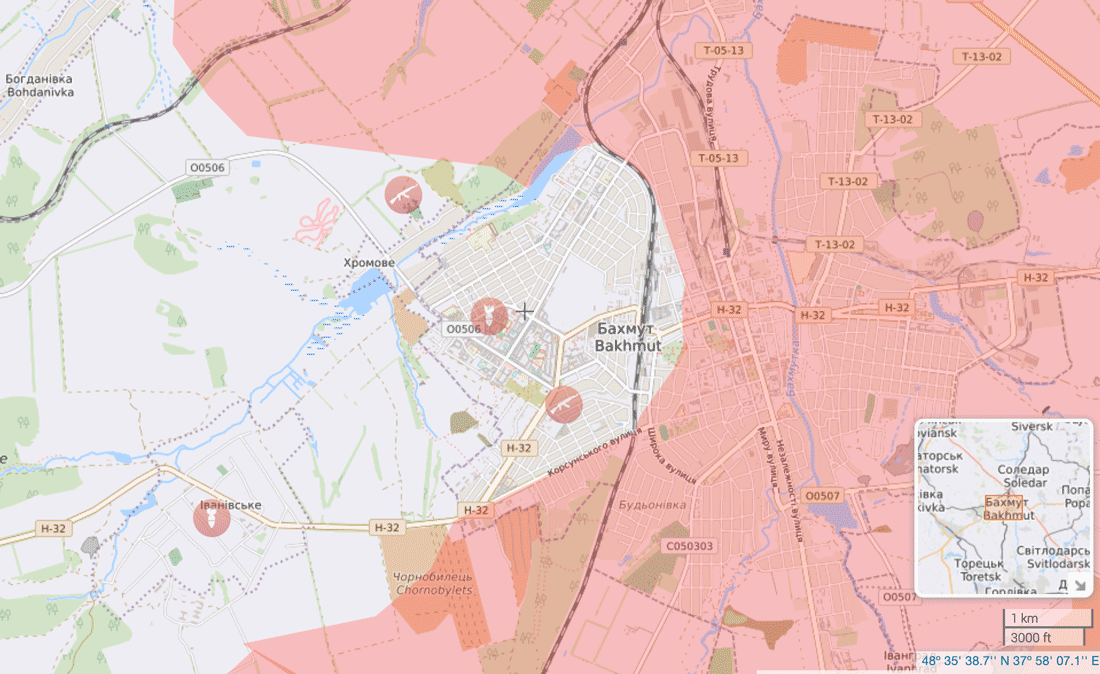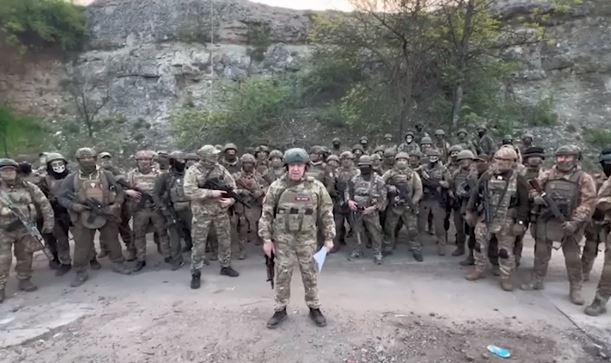Bakhmut, a city with a pre-war population of 73,000, remains a principal axis of advance in Russia’s offensive operation in Donbas. With only 2 kilometers from the frontline, Bakhmut bears constant shelling. The city prevents the Russian troops from encircling the northern cities of Soledar and Siversk. The most recent Defence Intelligence update claims that the offensive towards Bakhmut is advancing around 1km per week.
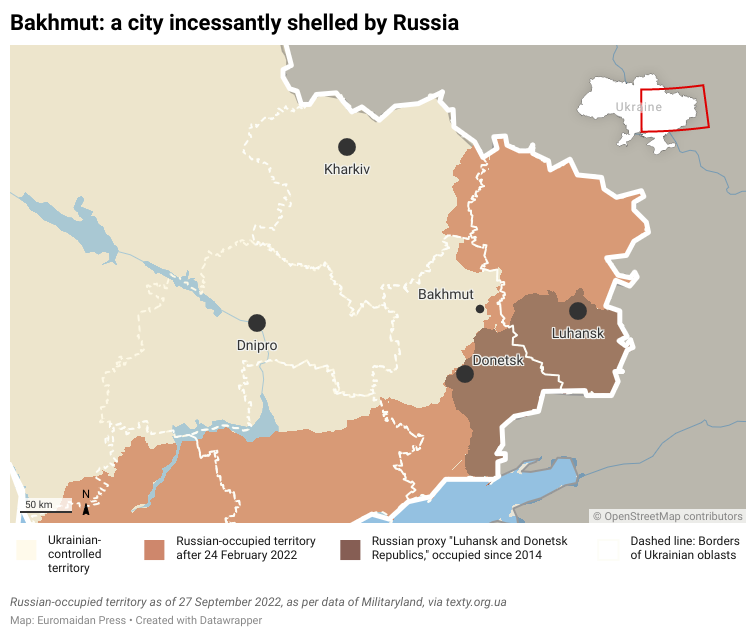
We have joined the volunteers of Dobra Sprava (“Good deed”) on their humanitarian mission in Bakhmut. Dobra Sprava is a Dnipro-based charity organization that daily evacuates people from the frontline areas. Additionally, the team has been helping people flee the war zone since the first days of the full-scale invasion of Ukraine. In April 2022, it also received the status of an NGO. In cooperation with local authorities and charity foundations, the volunteers of Dobra Sprava bring humanitarian aid to the frontline cities and place the evacuees in shelters in Dnipro.
By the end of the curfew, the volunteer team is packing the buses with humanitarian relief packages and commuting toward Donetsk Oblast. Entering Bakhmut through a curtain of fire reveals that the city is locked between the positions of Russian and Ukrainian forces on both sides.
From the Kremlin’s perspective, the Donbas operation’s political objective remains the capture of the entire Donetsk Oblast. Putin’s previously lauded directive to reach the borders by 15 September is falling through. However, in response to the recent liberation of Kharkiv Oblast, the Russian military administration has admitted to regrouping its forces along the Donbas frontline.
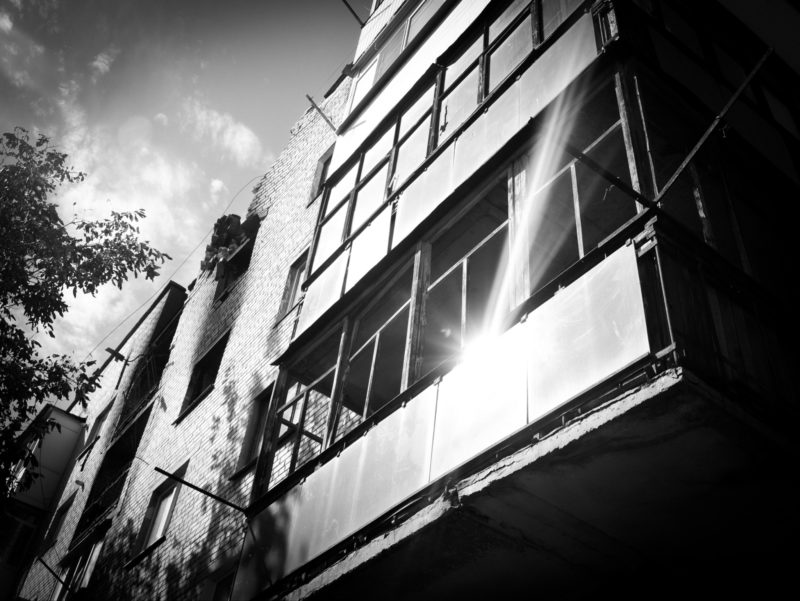
Today Dobra Sprava is delivering relief packages to the apartment block residents that have been directly shelled twice in the past three days. The most recent attack happened just a few hours before our arrival. The Uragan rocket flew through the apartment on the fifth floor, landing between the third and the fourth floors. A model from 1983, as indicated by the serial number on the rocket engine, lies on the staircase. Parts of its warhead, intended for release over the target area, are also present within a residential apartment block. Despite failing to detonate, the artillery completely destroyed the fifth-floor apartment and left the fourth-floor flat on fire.
A nozzle from the Uragan rocket engine found inside a residential building in Bakhmut. Screenshot from the video by Jan Shunkin.
During the shelling, the flat’s owner lost his wife. Despite the continuous explosions in the background, he is getting volunteer assistance and refuses the offer to evacuate.
According to the Ukrainian Ministry of Reintegration of Temporarily Occupied Territories, between 200,000 and 220,000 civilians remain in the unoccupied area of Donetsk Oblast and need urgent evacuation assistance.
An elderly woman admits:
“It’s deafening here, terrifying. The buildings are on fire, but we have nowhere to go. We stay here and live off these volunteer packages. It helps a lot.”
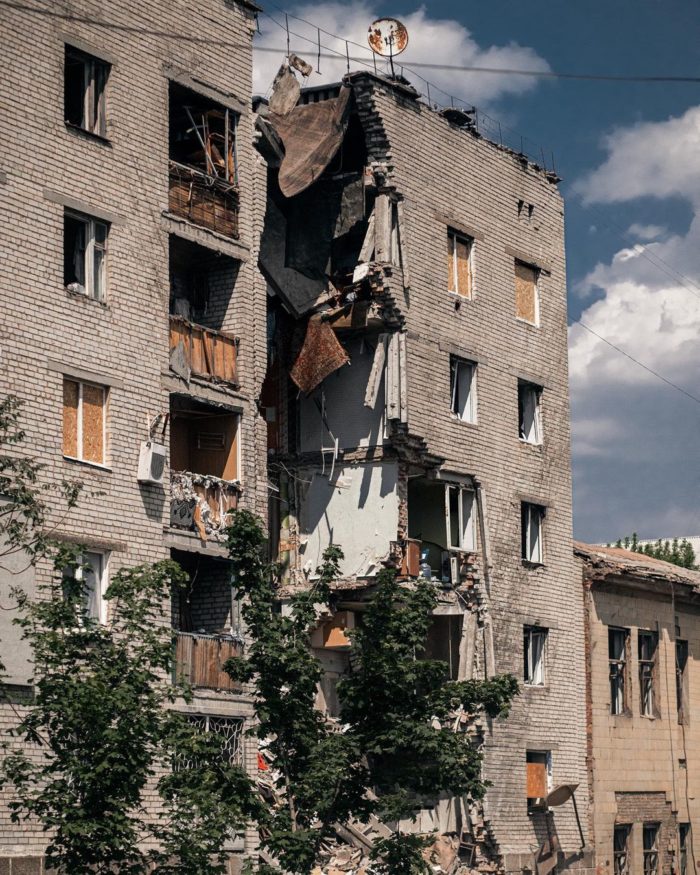
People who remain in Bakhmut and neighboring cities live on the edges of the battlefield. They live without electricity and water and rely solely on humanitarian aid. Despite the borderline death risk and the government calls to leave the area shrinking yet, a critical percentage of people refuses to evacuate. Authorities of Bakhmut report that between 7,000 and 9,000 people live in the city.
“Where are we headed? We will be homeless in another city. I’m unemployed and have no savings. How can I leave my place? Who needs us over there?” asks the mother of two while hiding in the basement during an intensified shelling.
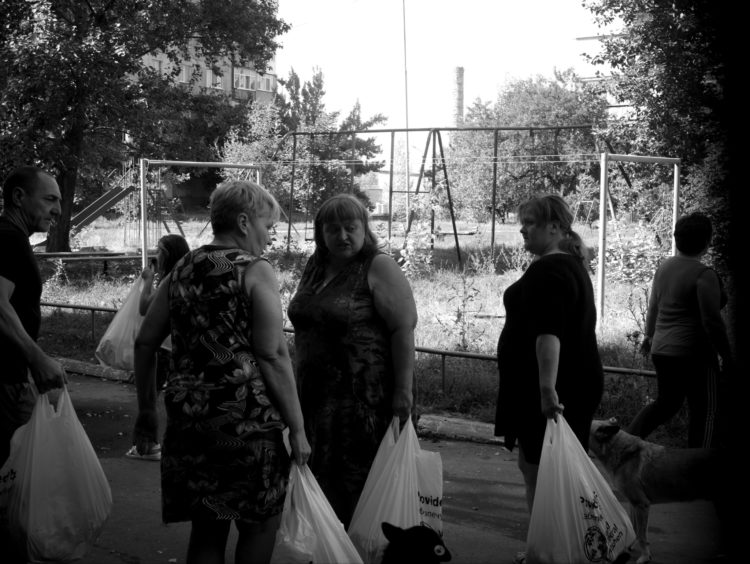
The government offers assistance to people fleeing frontline cities and temporarily occupied territories. Registered as internally displaced people (IDPs) can receive a monthly allowance of 2,200 UAH per adult and 3,000 UAH ($60-80) per child. To encourage IDPs to work, the government offers employers a subsidy of 6,500 UAH ($175) per employee from the temporarily occupied territory. Additionally, local governments and volunteer organizations provide humanitarian aid, free evacuation, accessible shelters, and free psychological, medical, and legal support. Yet many of those who decide to remain in the areas are heavily traumatized and unable to confide. They require a great deal of assistance.
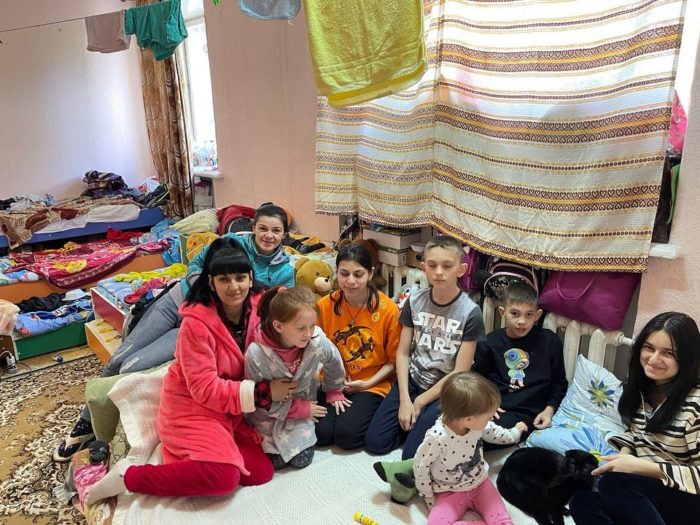
Alina Holovko, the coordinator of Dobra Sprava, has shared that a number of people whom the organization evacuated have returned.
“Sometimes they call us a second or third time with another request to evacuate. People struggle with acclimatization in a new city; they are still in shock and sometimes return.”
The volunteers must persuade people to leave.
“We tell them about the people we evacuated and show them the shelters. The road is tough in itself, but we are also working hard to persuade those who are afraid to take risks,” explains Oleksandr, the volunteer team’s driver.
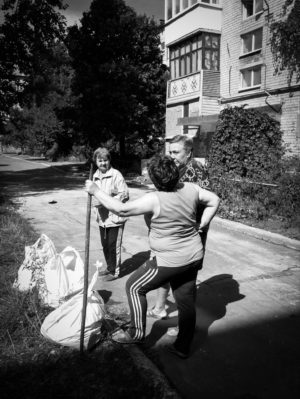
Dobra Sprava’s work began with an earnest initiative.
“When the war started, my friend and I made Molotov cocktails in my friend’s garage. We didn’t sleep. I needed to help. So I tried to join the army,” Alina explains. “My many relatives and friends live in Kharkiv. We were helping them move to Dnipro, and with each drive, we realized that more and more people needed assistance. We bought an old bus with a few friends, repaired it, and began evacuating daily.”
Dobra Sprava is currently evacuating people from Donetsk, Kharkiv, and Kherson Oblasts. The team of 23 volunteers coordinates the requests, manages the placement of evacuees in shelters, and organizes psychological, medical, and legal assistance for those in need. Analyzing the constantly shifting frontline and adjusting the routes is an essential part of the evacuation process, ensuring the safety of the evacuees and the drivers.
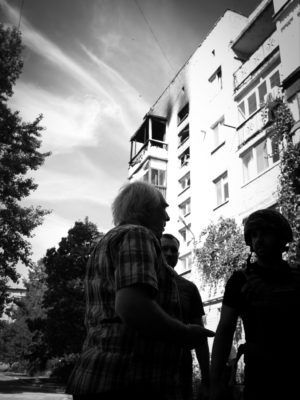
Bakhmut is subjected to constant shelling on a daily basis. Its proximity to the frontline prevents citizens from moving between the districts; lack of electricity hinders access to information. People are skeptical of evacuation because they have little understanding of the Ukrainian humanitarian relief system, let alone the current military situation in the region.
“I believe they will back down soon. There is heavy fighting going on around here, but I know what to expect. We hold our breath and wait. What can I expect in Dnipro? In Zaporizhzhia? It’s a stretch. I’m not sure what’s safer,” shares an elderly woman in the neighborhood.
The evacuation from Donetsk Oblast is currently required. With the impending colds and no access to heating or electricity, staying in the area is potentially fatal. Considering the disparity in the value of human life between the Ukrainian army and its adversary, the presence of people on the battlefield puts the former in a vulnerable position. Humanitarian assistance is required, but evacuation must take precedence.

Kateryna Hora is a freelance journalist and a local producer for international media covering the war in Ukraine.
Related:
- Civilians in Donetsk Oblast called on to evacuate as Russia steps up shelling
- Zaporizhzhia NPP area residents urged to evacuate on their own – Ukraine’s Reintegration Ministry
- Residents of Kherson Oblast should evacuate as “hard winter” is approaching – Minister for Reintegration Iryna Vereshchuk
- Russians shelled mental hospital during evacuation of patients, 4 medics killed
- Russian occupiers announce evacuation from Kupiansk amid Ukrainian counteroffensive
- Russian shelling destroys evacuation base of Red Cross in Sloviansk
- For Ukrainians in Crimea, free evacuation trains have been launched
- Russian troops shelled evacuation convoy in Zaporizhzhia Oblast
- Ukraine began mandatory evacuation of civilians from Donetsk Oblast
- Ukraine is preparing safe evacuation routes for people in Crimea




